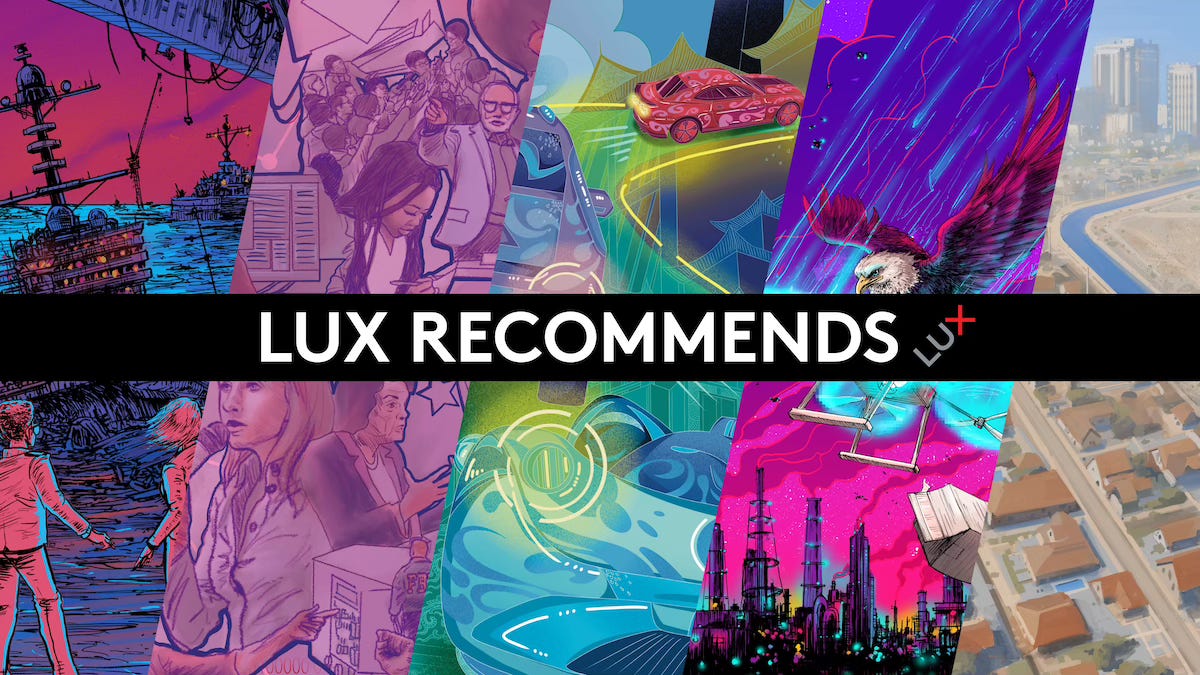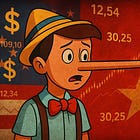The upside of civilizational ruin, science lies, and GPT and the meaning of life. Plus, biology and engineering.
From Lux Capital
In an interview with The San Francisco Standard this week, Lux’s Brett McGurk discussed his move to the private sector, tech in the Middle East, and what he wants investors to know about D.C.
Zoox, a former Lux portfolio company acquired by Amazon in 2020, got good news from Washington: regulators approved its electric robotaxis to operate on public roads. And Anduril became the third supplier of solid rocket motors — a major defense tech bottleneck — to the United States.
Lux is likewise enjoying tailwinds for many of its priorities. Last week, U.S. President Donald Trump released his U.S. AI Action Plan, which noted as a top priority a drive to “encourage open-source and open-weight AI.”
From around the web
1. The meek shall inherit the Earth
Although history in general is written by the victors, the history of societal collapse may be written by the biggest losers: the emperors, nobles and elites who had the most at stake when the civilization they built crumbled. From the perspective of everyone else, though, the return to a more egalitarian starting point might not have been so bad. Scientist-in-residence Sam Arbesman thinks you’ll enjoy Florian U. Jehn’s trip through the rise and fall of settlements, states and empires over at Existential Crunch.
When we summarize the arguments made in Kemp’s book, one thing that becomes pretty clear is that humans like to live in egalitarian and free societies. Paradoxically, societal collapse in the past has been a way to get back to more egalitarian and free societies. But this came at a cost. We lost technological progress, many people lost their lives. So, if this is the case: why don’t we cut out the middleman? If more egalitarian and free societies are the upside that collapse brought us, we could also get there without the downsides.
2. Publish and perish
Also headed for collapse: the scientific record. Producer Chris Gates recommends a report by Nidhi Subbaraman in the Wall Street Journal on the rise of “paper mills,” businesses that charge would-be-authors to publish fake studies in legitimate scientific journals under their byline.
After retracting more than 11,300 papers that appeared compromised, Wiley, a U.S.-based publisher with a portfolio of 1,600 journals, last year announced it would shutter 19 of its publications, including some that had shown signs of takeover by paper mills.
More recently, Taylor & Francis, an academic publisher that produces more than 2,700 journals, announced in July it would stop taking submissions to its journal Bioengineered while its editors investigated past papers for paper mill activity.
3. Take it back now, y’all
So what happens when a faulty paper is retracted? As it turns out, it’s complicated. Whether for outright fraud, mistakes, plagiarism or just outdated science, bad information is already out in the world. This episode from The Studies Show podcast — which covers retractions throughout history, the excellent watchdog Retraction Watch and rates of scientific paper withdrawals in different countries — is worth a listen.
4. The mourning shift
Finally, Sam liked Harvey Lederman’s meditation on work, grief, and the meaning of life after ChatGPT published in Shtetl-Optimized.
Grief, you don’t need me to tell you, is a complicated beast. You can grieve for something even when you know that, on balance, it’s good that it’s gone. The death of these dialects, of the stories told on summer nights in the mountains with the cows, is a loss reasonably grieved. But you don’t hear the kids wishing more people would be forced to stay or speak this funny-sounding tongue. You don’t even hear the old folks wishing they could go back fifty years—in those days it wasn’t so easy to be sure of a meal. For many, it’s better this way, not the best it could be, but still better, even as they grieve what they stand to lose and what they’ve already lost.
The grief I feel, imagining a world without needed work, seems closest to this kind of loss. A future without work could be much better than ours, overall. But, living in that world, or watching as our old ways passed away, we might still reasonably grieve the loss of the work that once was part of who we were.







